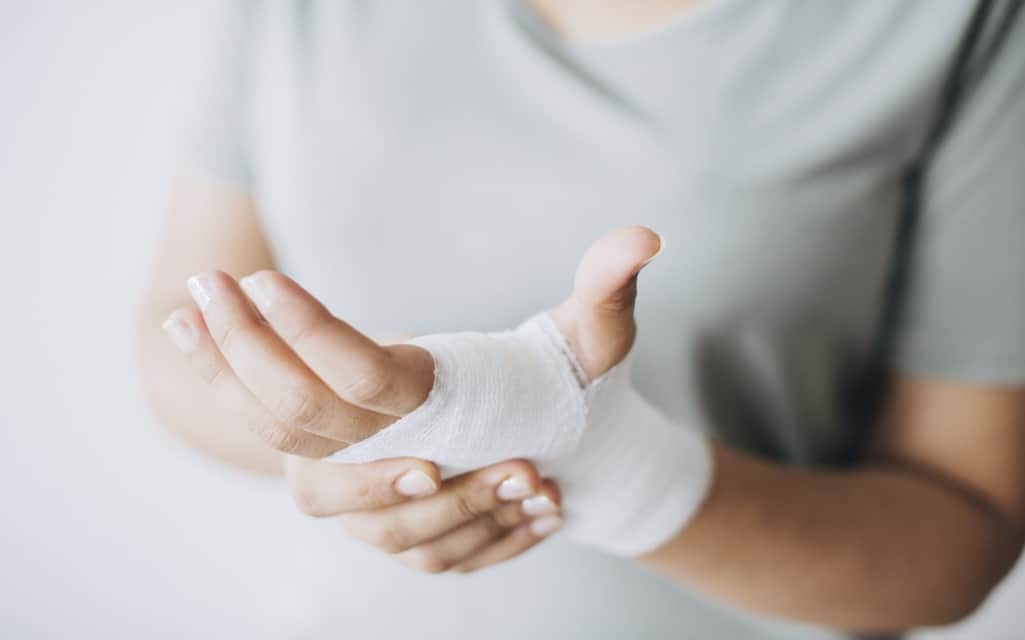Your skin is the largest organ in your body – a protective barrier from the outside world. But when your skin is wounded, your body’s internal tissues become exposed to your external environment.
There are a few myths to dispel when it comes to healing open wounds. For instance, leaving an open wound uncovered to “dry out” can actually increase pain and slow the healing process, and applying alcohol or peroxide to the wound site can be equally damaging.
Generally, injuries caused by a blow, cut, or impact that breaks the skin will heal naturally over time. However, you can do a few things to help speed up the process.
1. Use the Right Dressings and Change Them Often
If your wound requires dressings – whether they are made from gauze, hydrocolloids, optifoam, etc. – you’ll need to change them regularly. If your wound is a result of surgery, you’ll likely have already received guidelines on how to care for it from your medical provider.
Changing bandages as soon as they become soaked is a critical step in correct wound care – leaving wet dressings can slow down the healing process and even encourage infection.
2. Clean the Wound
Before applying dressings to any cut or scrape, you should clean the wound. If wounds aren’t cleaned of debris and pathogens, they could remain in the wound and slow down the healing process.
The first step in wound care is to gently but thoroughly flush the wound out with water and an antiseptic solution or mild soap. Once the wound is clean, pat it dry with a clean piece of gauze.
Examine the wound for any pieces of debris – like small pieces of glass or wood. If debris is lodged inside the wound, remove it with a pair of sterile tweezers before bandaging it up.
3. Use a Topical Antibacterial
Wounds can be treated with over-the-counter antibacterial ointments and salves. These antibacterial ointments kill pathogens, reduce the risk of infection, and help wounds heal faster.
If, for whatever reason, you don’t have access to over-the-counter antibacterial ointments, you can use petroleum jelly – which will provide an additional protective barrier underneath the bandage.
4. Don’t Let it Get Wet When You Bathe
Avoid getting your wound wet while you bathe or shower. Getting a wound wet while you bathe increases the risk of infection because you can spread harmful bacteria from one part of your body to another.
You can use a cast or wound protector in the bath or shower, or you can wrap your wound in plastic wrap to cover it and tape a kitchen trash bag over it. If it’s impossible to keep your wound dry when you bathe or shower, medical professionals recommend opting for a sponge bath instead.
5. Get Enough Sleep
Sleep is vital to your body’s regeneration process. During sleep, your body heals and recovers from stressors and injuries.
Your body releases more of the hormones required for growth at night, which helps regenerate your skin cells while you sleep. Getting enough sleep is essential for all of your body’s regenerative processes.
6. Stop Smoking
If you have a wound that is not healing like it should, stop smoking. Every time you smoke a cigarette, the blood vessels in your body narrow by 40% to 45% for several hours. If you smoke another cigarette during that time, you risk starving your wound of the vital oxygen-rich blood it needs to heal.
Quitting smoking or cutting down will speed up the healing process of all wounds.
7. Look Out for Signs of Infection
Every time you change your dressings, you should watch out for signs of infection. If your wound gives off an odor, oozes opaque fluid, feels hot to the touch, or is swollen and inflamed around the edges, it may have become infected.
If you suspect an infection, seek medical assistance from your primary healthcare provider right away.
When to See a Doctor
Generally, minor cuts and abrasions will not need stitches or staples to help them heal. However, puncture wounds or injuries that cause the skin to tear will need to be debrided and covered with dressings to keep the area moist.
If your wound continues to bleed even after you’ve applied continuous pressure, you may need stitches, adhesive glue, or staples. If you sustain a deep wound that requires stitches or you’ve been bitten by an animal, do not attempt to treat it at home. In the case of animal bites, you may also need tetanus and rabies shots.



